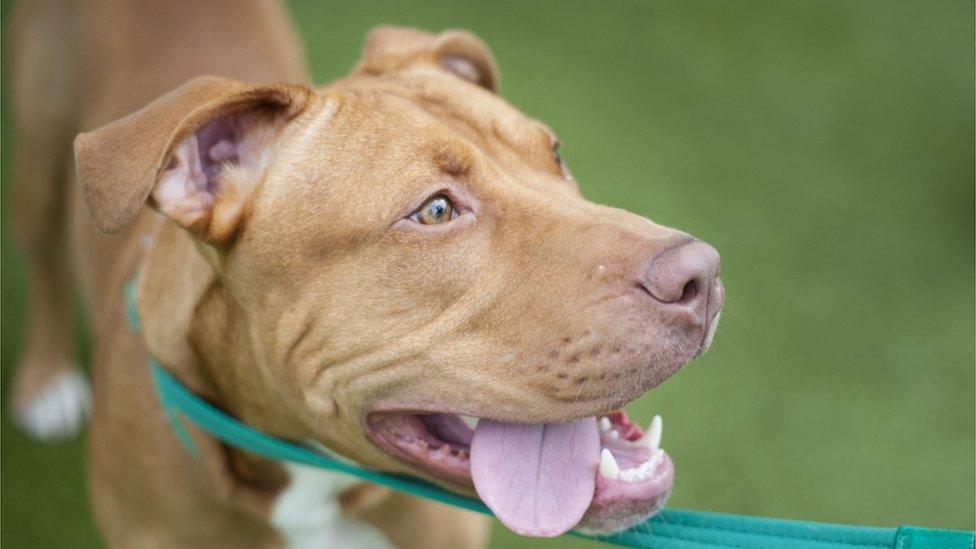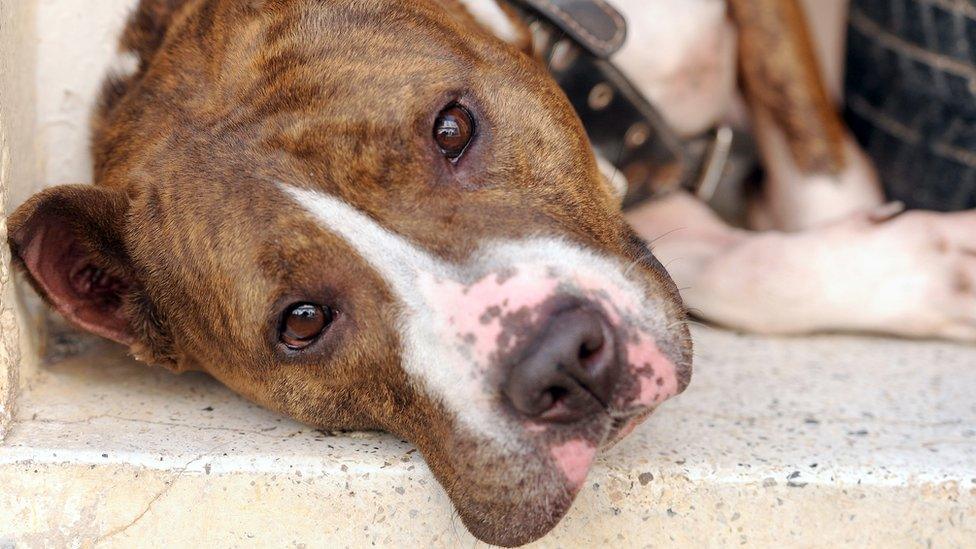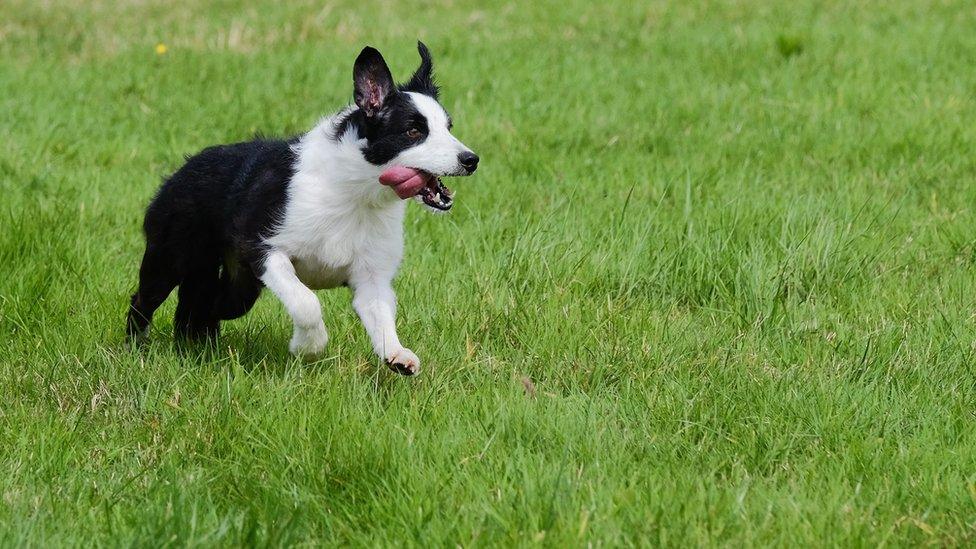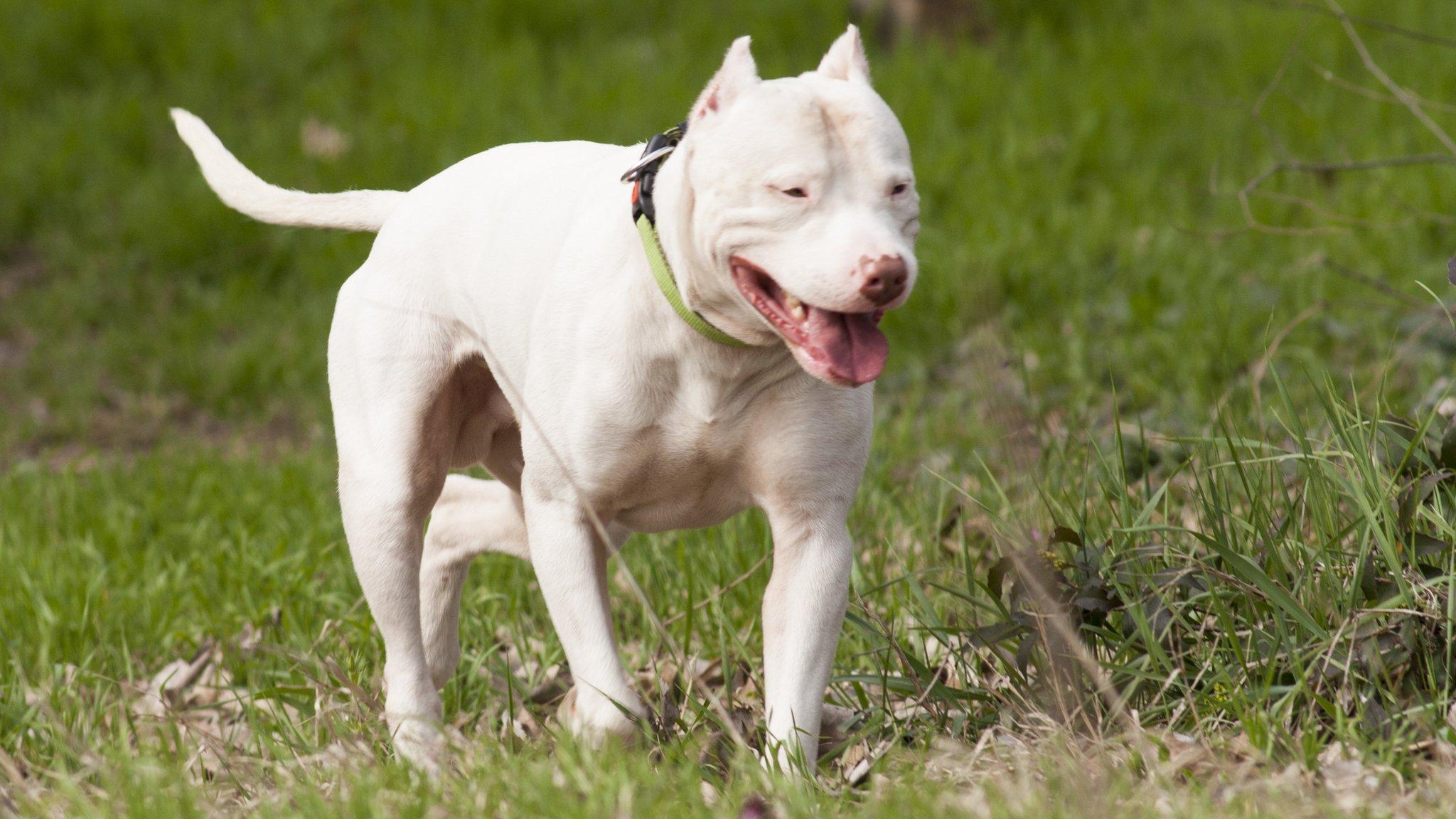Dangerous Dogs Act has never worked - Andrew Rosindell MP
- Published

Dexter Neal, three, died after being bitten by a dog
The Dangerous Dogs Act has "never really worked" because it only deals with certain breeds, a Tory MP has said as he called for a review of the law.
Andrew Rosindell, a Staffordshire bull terrier owner, said resources should be used to deal with any dangerous dogs, not just the four banned breeds.
His call follows the death on Thursday of three-year-old Dexter Neal, who was mauled by an American bulldog in Essex.
His uncle Ashley Coe wrote on Facebook of the "absolutely devastating loss".
Describing Dexter as his "darling nephew", he wrote in his post: "I can't even begin to describe the state we are all in."'
'Out of control'
Mr Rosindell, MP for Romford, said the dog which attacked Dexter was not one of the breeds banned under the 1991 act, adding "You do need a complete review of this legislation. It's simply not effective."
Breeds banned by the act are pit bull terriers, the Japanese tosa, dogo Argentino and fila Brasileiro, types that have traditionally been bred for fighting.
The act also makes it an offence for an owner to allow any dog "to be dangerously out of control".
Mr Rosindell told BBC Radio 4's Today programme that he had long argued that the problem is not with the dogs but their owners.
"There are lots of breeds of dogs that can be just as dangerous as the ones listed in the Dangerous Dogs Act, external so to get rid of this legislation to replace it with a more flexible form of regulation means that the police and local authorities could then focus on where there is a known dangerous dog or an irresponsible owner," he told BBC Radio Four's Today programme.
"It is impossible for authorities to check every single dog [and owner]... but certainly if there's one incident then that dog and that owner would then have to be checked and warned, and if there's a second incident, then the authorities may want to take action.

Pit bull terriers are one of the four breeds banned by the Dangerous Dogs Act
"The dog is like a human being almost. If you treat it badly, if you train it to do bad things, if you torment it, it will become aggressive.
"The problem is they only really have powers to act on those four breeds so they waste a lot of time on dogs that aren't dangerous instead of dealing with the ones that are."
Dogs 'vilified'
Just days before Dexter's death, David Ellam, 52, from Huddersfield, was attacked and killed by a dog which had been returned to its owner despite concerns that it was dangerous.
After his death, Caroline Kisko, Kennel Club Secretary, said she believed the act was "completely flawed".
"We've been given the idea that we are all secure because the Dangerous Dogs Act has vilified a certain type of dog and therefore, as long as they're illegal, we're all safe," she said.
"Any dog can be dangerous if it is wrongly handled and wrongly trained."
The Dangerous Dogs Act has been amended over time.
In 2014, sentencing guidelines in England and Wales were changed to raise the maximum jail sentence for a fatal dog attack from two years to 14.
The law was also extended to include attacks which happen on private property and the police and authorities were given powers to require owners to attend dog training classes or muzzle their dog in public.
A spokesman for the Department for Environment, Food and Rural Affairs said: "Any dog can become dangerous if it is kept by irresponsible owners in the wrong environment which is why the Dangerous Dogs Act covers any type of dog that is dangerously out of control."
- Published19 August 2016

- Published13 August 2016

- Published19 August 2016

- Published17 March 2016
